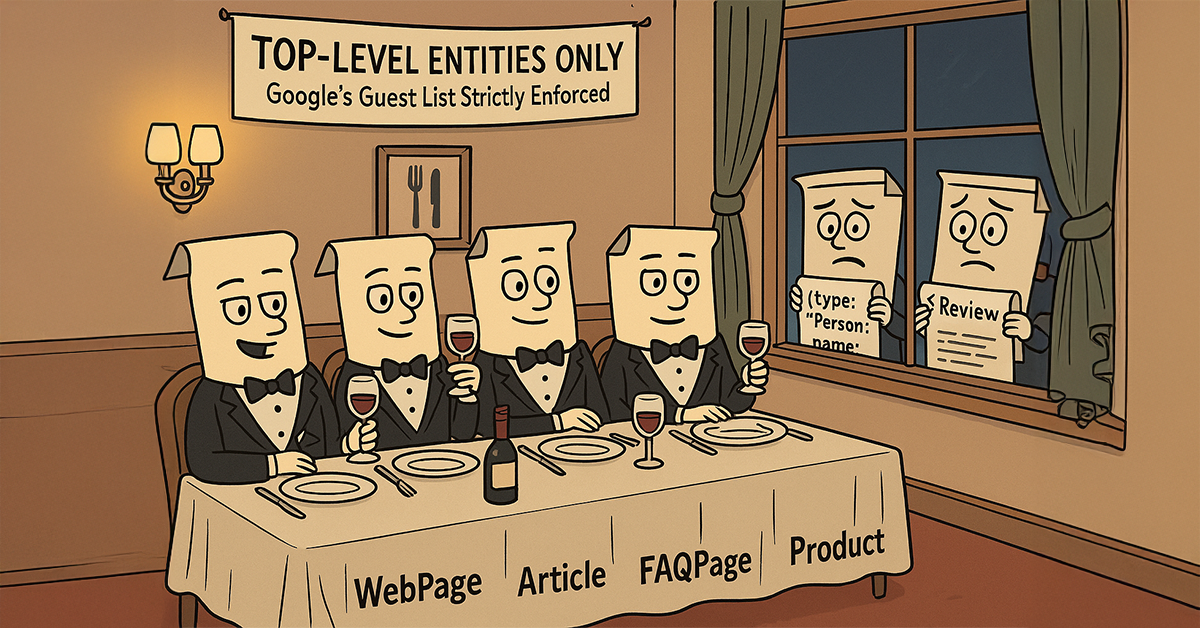
Let’s be honest: the world of structured data is riddled with misunderstandings. Not because it’s especially complicated (it isn’t), but because too many developers and content managers rush in waving their JSON-LD flags without pausing to consider the fundamental architecture that Google actually cares about.
Now, here’s the bit you might have missed — brace yourself — not every Schema.org type is eligible as a top-level entity when it comes to rich results. Yes, I know. It’s shocking. Or at least, it would be if one had bothered to read the documentation properly.
Take Person, for example. Logical, right? You want to mark up a profile page for an employee or director, and you think: Ah! I'll use the Person type! And so you do — blissfully unaware that Google will ignore it entirely unless it's nested inside a supported parent type, such as ProfilePage. Why? Because Person, charming and semantically accurate as it may be, is not eligible to trigger rich snippets by itself. Google simply doesn’t care how wonderfully you’ve defined someone's blood type, alma mater, or shoe size unless it's framed within a recognisable context.
Similarly, take FAQPage. This one is a valid top-level type — but here’s the kicker: if you try to use Question at the top level, as some do when “keeping it simple”, you’re effectively shouting into the void. Question must always be wrapped in FAQPage or sometimes WebPage, otherwise Google’s rich results engine will regard your beautifully crafted markup as little more than syntactic doodling.
To those of you who are now squinting at your site’s source code, furiously ctrl+F-ing your way through stray @type values: good. You’re learning. And that’s the first step.
In short, read the rules. Use Schema.org as your lexicon, yes — but remember that Google only listens to certain speakers. If you're not wrapping your data in one of their supported structures — WebPage, Article, Product, ProfilePage, FAQPage, et cetera — then you're effectively whispering sweet nothings into an uncaring void.
And I, for one, would rather you didn’t waste your breath.